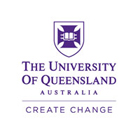Right people. Right message. Creative communication specialists are increasingly in demand in our fast-paced, ever-changing digital landscape. With dramatic changes taking place in media industries, technologies and cultures, our Bachelor of Communication prepares you for a lifetime of creative and innovative use of media and communication. You'll build a strong foundation in writing, industry engagement (including internships), practice and production skills, and critical thinking. Your study covers a wide range of communication forms, including emerging media platforms and technologies, social media, mobile media, and screen, audio and written forms. You'll gain the skills to reach the right people with the right message, from concept to delivery. Plus you'll develop industry-focused communication tactics through working with real organisations, gaining firsthand experience in strategic industry practice. The core set of courses introduce you to the central features of contemporary communication processes, and you then specialise by choosing a major in either public relations or digital media. All courses combine practice and theory, giving you the skills to make your mark on the world.
The Digital Media major offers a sequence of courses dealing with contemporary media practices, institutions and technologies. Students will learn a combination of critical analytic, research, production, management and planning skills related to contemporary media industries. The major is distinctive for its emphasis on a combination of critical perspectives, research and analytic frameworks, and content and platform management. The major prepares students to work in industry roles that require a combination of digital analytics, social engagement and content production skills. The major approaches media as technologies for orchestrating social, cultural and political life. Across the major courses focus on the continuous evolution of media technologies and industries, the interactive and data-driven platforms that now form the basis of everyday media infrastructure, significant domains of cultural production such as news and television, and the role media plays in the formation of identity.






